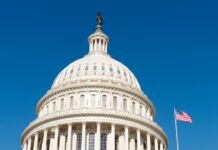
Chairwoman Rosenworcel and the Democratic side of the Federal Communications Commission caused a stir when they used a Notice of Proposed Rulemaking about prioritizing applications from broadcast stations with more local content to publicly question the efficacy of the FCC’s 2017 Main Studio Elimination Order.
Now musicFIRST Coalition and Future of Music Coalition have submitted comments on that NPRM, leaning less toward rewarding local content and more toward calling for the Main Studio Rule’s hopeful reinstatement.
“The Commission is correct to question whether the predictive judgments in its Main Studio Elimination Order have actually come to pass,” says the filing. “Since the elimination of the Rule, we have observed a trend in commercial FM radio of a general decrease in localism rather than an increase.”
Federal Communications Commission’s proposal to prioritize applications from broadcast stations that offer at least three hours of locally originated programming weekly.
The main concerns that led to the Main Studio Rule’s dismissal were centered around the financial obligations of maintaining a physical studio and staff for each station, in addition to making it easier for radio broadcasters to compete with unregulated digital rivals.
musicFIRST and FMC argue that there was a better way of accomplishing the first goal, saying, “The elimination of the Rule in its entirety was overly aggressive… and we lament the Commission not having taken a more measured approach to providing relief to broadcasters from certain burdens associated with rule compliance.”
This new focus comes after musicFIRST tried to lobby support for the American Music Fairness Act, which would have imposed a new royalty tax on radio groups and owners across the US. That legislation has all but failed while the opposing Local Radio Freedom Act, which would protect AM/FM from additional financial burdens, recently gained majority support in the US House of Representatives.
musicFIRST continues, “We know of no instances where commercial radio broadcasters reinvested savings obtained by taking advantage of the elimination of the Rule and into creating more locally originated programming than had been produced prior to the Rule’s elimination (although we have no doubt that certain commenters in this docket will cherry-pick anecdotes to falsely portray that localism in commercial radio has somehow increased rather than decreased in the wake of the elimination of the Rule).”
Despite recognizing that not all locally originated content may serve community needs effectively, they close by agreeing with the FCC that programming with local content is more likely to address local concerns.









Over the years the FCC has gone out of its way to contradict itself. Interference? How about IBOC. Localism? How about eliminating the main studio rule? If a broadcaster isn’t required to have a “local” studio, why would they make the effort? It would seem that frequencies are allocated to communities for a purpose, but eliminating the main studio rule has all but legalized abandoning the “city of license”. The residents of these communities should be in an uproar.
“We know of no instances where commercial radio broadcasters reinvested savings obtained by taking advantage of the elimination of the Rule and into creating more locally originated programming than had been produced prior to the Rule’s elimination (although we have no doubt that certain commenters in this docket will cherry-pick anecdotes to falsely portray that localism in commercial radio has somehow increased rather than decreased in the wake of the elimination of the Rule).”
Given they aren’t involved directly with such information, why would they “know of anything”. It still doesn’t stop them of “guilt by assumption” which os several steps below identifying actual facts.
But they sure don’t mind acting like a jilted girlfriend …